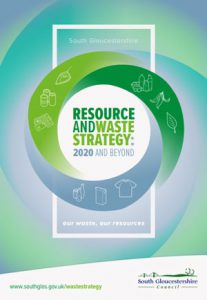Read our waste strategy
Our waste strategy sets out our plans for the service. It ensures we continue to reach our recycling targets and provide a service focused on waste prevention and recycling more.
Resource and Waste Strategy: 2020 and Beyond
Our Resource and Waste Strategy 2020 and beyond was signed off by Cabinet on 02 March 2020.
The new strategy is focused on doing our bit to save our planet’s precious resources by reducing our consumption, especially of single-use items and ensuring our environment is protected for future generations. It sets out our environmental aspirations for a more sustainable South Gloucestershire, with an ambitious target to achieve zero waste to landfill by 2030 and contributes to the target of achieving net zero carbon emissions across South Gloucestershire by 2030, set out in our Climate Emergency Declaration.
Our vision
‘To meet our environmental aspirations for a sustainable future by valuing all resource and preventing waste whenever possible. Where waste is created, we will work to achieve a circular economy that encourages re-use, repair and recycling. Everyone has a responsibility for their waste and we want to work with communities to find innovative solutions to keep our streets clean and tidy.’
Technically, environmentally and economically practicable (TEEP)
The EU revised Waste Framework Directive (r-WFD) was transposed into UK law through the Waste (England and Wales) Regulation 2012. It clarifies key concepts such as the definition of waste, recycling and disposal. The directive places more emphasis on the waste hierarchy and improving the quality of collected recyclable material that is sent to re-processors.
The regulations state that from 1 January 2015 every waste collector and waste collection authority must collect paper, metal, plastic or glass by way of separate collection where it is:
- necessary to ensure the waste is handled in accordance with the waste hierarchy
- necessary to ensure that waste is managed without endangering human health and without harming the environment
- necessary to facilitate or improve recovery
- technically and environmentally and economically practicable (TEEP) to do so
We are compliant with the TEEP assessment. For further information you can read our TEEP assessment evidence document.
